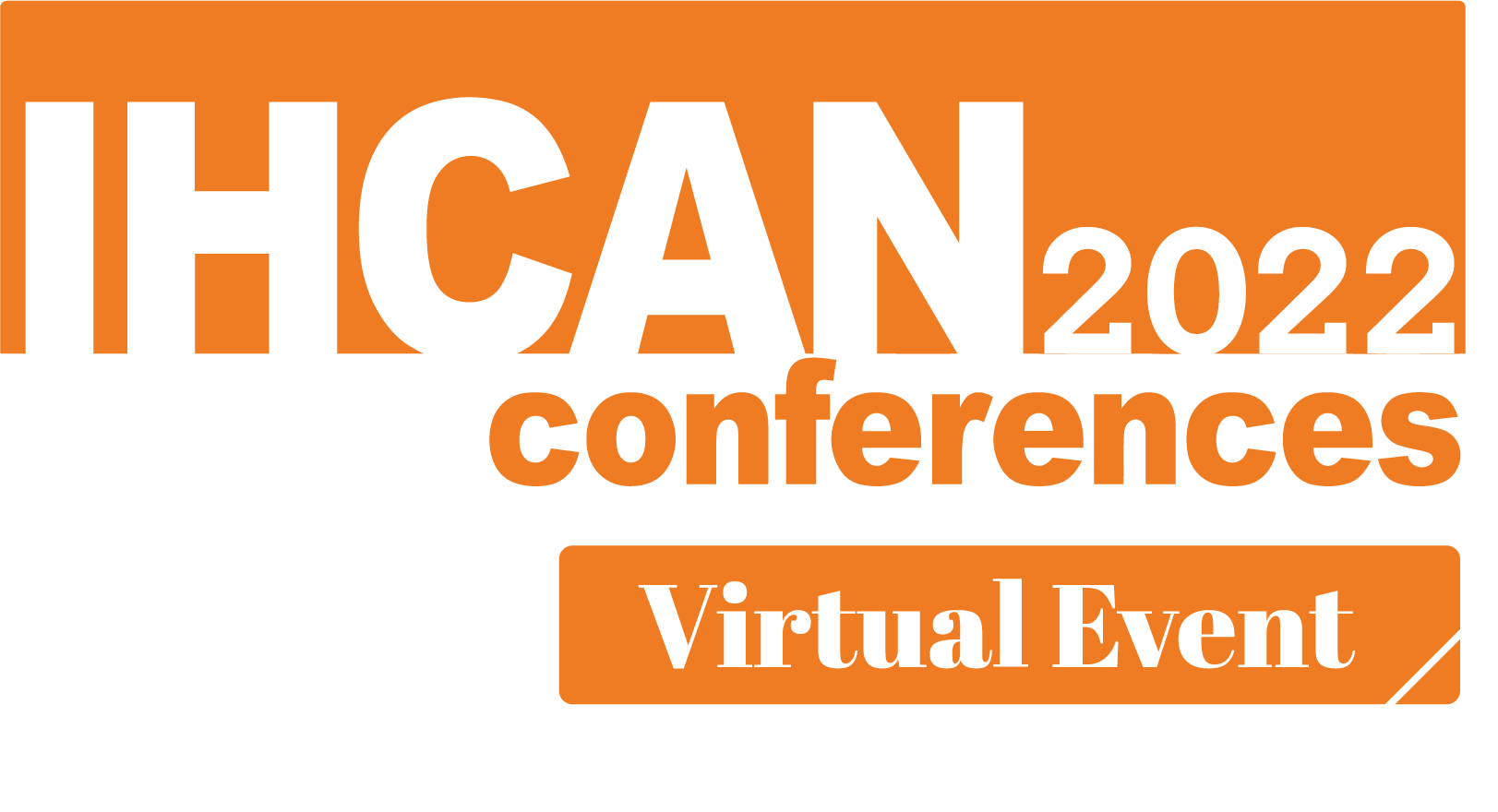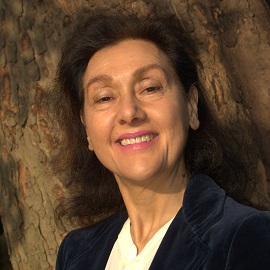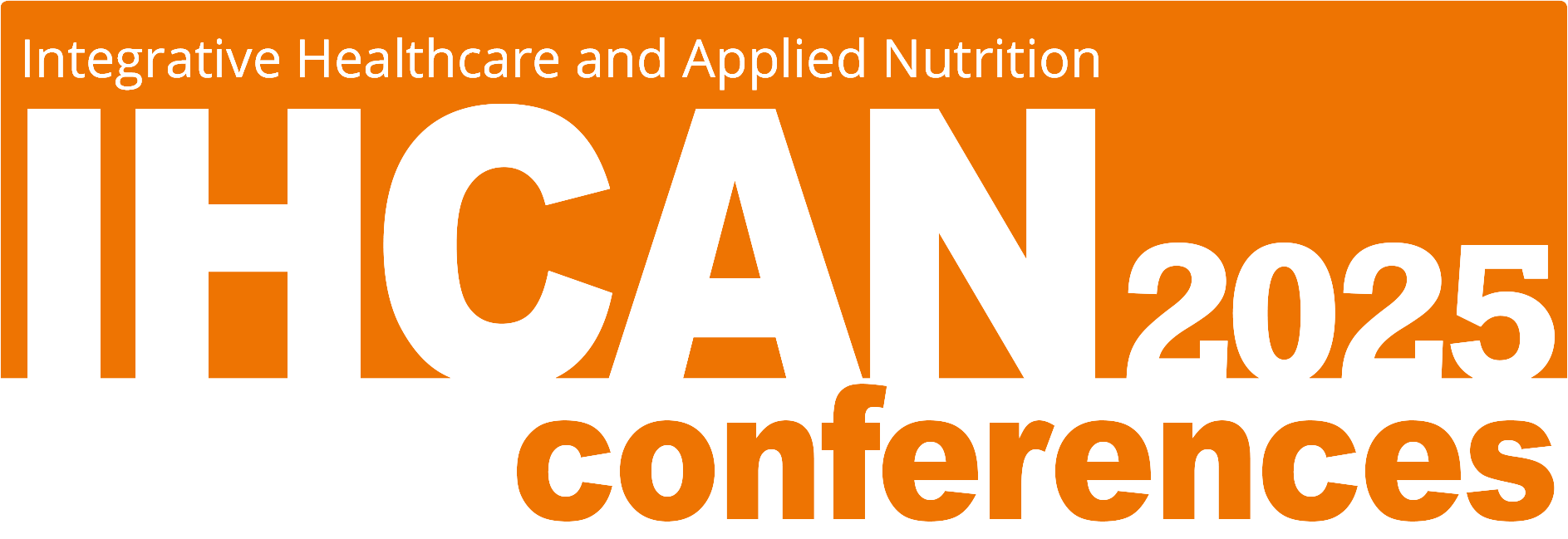Virtual Event - 26 February 2022
The IHCAN Conferences return for 2022 with a stellar line-up of internationally-recognised and respected speakers tackling the hottest topics in complementary and integrated health and nutrition.
Association and student discounts available
Members of professional associations and students save 10% at checkout
Expert speakers
CPD accredited
4.5 CPD hours (application pending)
A huge expo
Although live education is back and more exciting than ever, we know how well-received online IHCAN education has been over the past 18 months, so that’s why it’s here to stay!
We’ve got world-class speakers and, thanks to a bespoke bit of techno-wizardry, you’ll enjoy a virtual expo featuring specialist practitioner suppliers as well as short break-out sessions and online networking.
We’re kicking off this year’s IHCAN Conference series with the inspirational Dr Robert Lustig, MD, author of Fat Chance and his new, hard-hitting, evidence-based attack on orthodox medicine and the food industry: Metabolical.
Professor of Paediatric Endocrinology at the University of California, Dr Lustig will be delving into the eight cellular pathologies that underlie modern chronic disease – and explaining why energy metabolism underpins all of them. He cooks down his approach into a simple mantra: protect the liver, and feed the gut.
Dr Lustig is relentless in his criticism of Big Pharma, the food industry – and dietitians, who he says in the US at least have lost their way. But this is not just an opinionated rant, Metabolical has more than 1000 references, which he’s had to park online to save paper.
The big news these days is still COVID, and for us in particular long COVID. So for our first event of 2022, Dr Lustig is joined virtually by IHCAN magazine favourite, Anne Pemberton, who will discuss – drawing not just on an extensive evidence base, but also personal experience, how COVID-19 manifests in the body and what we can do about it.
Anne is an expert on nutrigenomics (a book is due out later this year), so of course she will also explore SNPs (single nucleotide polymorphisms) associated with – or affected by – COVID-19 and long COVID.

How is it different to the IHCAN Conference Webinars?
Using a brand new, bespoke, virtual conference and expo platform, the IHCAN Conferences Virtual Event is a whole-day event with multiple live sessions and a virtual exhibition – bringing the “in-person” conference experience direct to your device.
How does it work?
We’re using a bespoke virtual conference and expo platform – you don’t need to download any additional software and it will work on every device.
It works best on Google Chrome or Mozilla Firefox and we recommend you make sure your browser is up-to-date.
Alternatively, for mobile there’s a simply app to download.
We’ll send you access details two weeks before the event.
Full schedule
11.00 – 12.00: Assorted breakout sessions
12.00 – 13.00: Lunch
13.00 – 14.30: Anne Pemberton – ‘Covid-19: What can we learn from genetics?’
14.30 – 15.00: Break
15.00 – 16.00: Dr Robert Lustig – ‘The Hateful (or Grateful) 8: the subcellular pathologies that belie chronic disease’
16.00: Finish
4.5 CPD hours (application pending)
15.00 – 16.00:
‘The Hateful (or Grateful) 8: the subcellular pathologies that belie chronic disease’
Lifespan (years of life) and healthspan (years of disease-free life) continue to decline due to increases in chronic diseases. Type 2 diabetes, hypertension, dyslipidemia, cardiovascular disease, cancer, dementia, fatty liver disease – these chronic diseases have treatments, but they do not have cures. Specific medications may mitigate the symptoms, but not the disease itself. The reason is that these “diseases” are not the real disease. Rather, they are the manifestations of eight underlying subcellular pathologies. These pathologies — glycation, oxidative stress, mitochondrial dysfunction, insulin resistance, membrane instability, inflammation, methylation, autophagy — are common to chronic disease. However, there are no medications that effectively deal with any of them. Rather, changes in food consumption has the power to mitigate each of these pathologies to increase both lifespan and healthspan.
Learning Objectives:
- To demonstrate that chronic diseases therapy only treats symptoms, not the actual disease process
- To delineate the eight subcellular pathologies that belie all chronic disease, and how they contribute to morbidity and mortality
- To show that these subcellular pathologies are foodable but not druggable
About Robert H. Lustig, M.D., M.S.L.
Robert H. Lustig, M.D., M.S.L. is Professor emeritus of Pediatrics, Division of Endocrinology at the University of California, San Francisco (UCSF). He specializes in the field of neuroendocrinology, with an emphasis on the regulation of energy balance by the central nervous system. His research and clinical practice has focused on childhood obesity and diabetes. Dr. Lustig holds a Bachelor’s in Science from MIT, a Doctorate in Medicine from Cornell University. Medical College, and a Master’s of Studies in Law from U.C. Hastings College of the Law.
Dr. Lustig has fostered a global discussion of metabolic health and nutrition, exposing some of the leading myths that underlie the current pandemic of diet-related disease. He believes the food business, by pushing processed food loaded with sugar, has hacked our bodies and minds to pursue pleasure instead of happiness; fostering today’s epidemics of addiction and depression. Yet by focusing on real food, we can beat the odds against sugar, processed food, obesity, and disease.

10.00 – 11.00:
‘Pharmacokinetics & The Blood Brain Barrier: Therapeutic effects of key Elemental Minerals in the treatment of Post-acute Sequelae COVID-19 (PASC) & related viral infections and chronic diseases’
Join Dr Zouë Lloyd-Wright for this insightful presentation, focusing on mineral deficiencies, which may lead to detrimental health impacts, including chronic diseases.
The presentation will focus on the latest medical research, with a special emphasis on how advanced elemental mineral solutions can accord the practitioner an all-important pathway to well-being for their patients, and are of the utmost importance, in the effective treatment of Long COVID (PASC) with examples of successful protocols. Dr Lloyd Wright will touch on the crucial role that light and photons play in the optimisation of certain minerals, their superior pharmacokinetic properties, and why specific mineral solutions with the right energy potential (measured as Zeta Potential), make the most effective minerals supplements.
Zouë will also explore the importance of supporting key organs and tissues, to alleviate the long-term health consequences of PASC, especially the brain, heart, CNS, respiratory system, bowel, and immune system, with different therapeutic approaches.
About Dr Zouë Lloyd-Wright Dip. DT., BA.(Hons)., BSc (Hons), Ph.D.
Zouë Lloyd-Wright, Dip. DT., BA.(Hons)., BSc (Hons), Ph.D. is a Clinical Nutritionist and Integrated Doctor and Consultant for Noble Naturals, who received her training at King’s College London in conjunction with the King’s College London Teaching Hospital at Denmark Hill, Oxford University in conjunction with Radcliffe Infirmary.
She has personally conducted major studies on thousands of subjects investigating cancer endocrine disorders and cardio vascular disease. Much of her investigative work was part of the European Prospective Investigation into Cancer and Nutrition-Oxford (EPIC-Oxford). Dr Lloyd-Wright also has over 22 years experience in her own practice focusing on a Naturopathic approach to Nutrition Therapy, working mainly through developing her patients understanding and awareness of how normal food can be used as a medicine to promote their health at all levels thereby providing them with a lifelong nutritionally based means of healthcare.

13.00 – 14.30:
‘Covid-19: What can we learn from genetics?’
Anne will be discussing what the evidence tells us about how Covid-19 manifests in the body. We will explore possible single nucleotide polymorphisms associated with or affected by Covid-19 and what doctors are now calling long covid.
This will be followed by how the practitioner might consider working around the genes to gain an advantage for the client. This presentation will also include some facets of what we know from ancient medicinal arts such as how our emotions might affect the outcome in the long Covid-19 clients.
About Anne Pemberton MSc, PGCHE, PGCE(Autism), RGN, DipION, fHEA, mCNHC, fBANT, NMC
Anne’s career spans 30 years of cardiothoracic intensive care nursing, Her son’s diagnosis of ASD totally changed her career trajectory as she looked to natural therapies to support him. Anne retrained in psychology then later in Nutrition and higher education teaching. She practices functional medicine runs a busy international clinic specialising in Autism spectrum disorders and chronic fatigue syndrome. She is also a published co-author and established international speaker. Since 2008 Anne has been teaching academic and clinical modules on Nutritional therapy courses, She was course director for the MSC in Nutrition Science and Practice at the Northern College of Acupuncture in York, 2010-2017. Anne has a real passion for the study and practical application of Nutrigenomics. Her book Using nutrigenomics within personalised nutrition is due to be published this year. She has been regular contributor for IHCAN magazine.

11.00 – 12.00:
Assorted breakout sessions
A selection of short break-out sessions on a variety of topics – take your pick! But don’t worry if you want to watch more than one, you’ll receive the recordings for every session after the event:
‘Probiotics and their use in conventional medicine’
Probiotics are well-known for helping to address gastrointestinal disorders and have also shown potential for use with vaginal health conditions, heart health and skin health. However, there are specific probiotic strains that have demonstrated their effectiveness in clinical trials and can therefore be considered as evidence-based alternatives or adjuncts to conventional treatments. During this presentation, we will explore the use of probiotic therapies alongside conventional medicines and discuss how they may help your clients to achieve better health outcomes.
About the speaker: Sarah Oboh, BSc (Hons) Nutrition
For over 11 years, Sarah has worked within the healthcare industry. Driven by her passion for transformative nutrition, she began her career as a Nutritionist in private and public health. With a keen interest in complementary and alternative medicine (CAM), she decided to pursue a role at Optibac, where she supports practitioners in their recommendation of probiotics in practice.
–
‘Fermented Foods: What Does the Science Say?’
Fermented foods and beverages have been a staple of human diets for centuries and are an increasingly popular food category. Fermentation assists with food preservation, improves food’s functional properties and transforms bland raw materials into nutritious, palatable or intoxicating products. Microorganisms play a crucial role in fermented food production, and the scientific and technological revolution has vastly expanded our understanding of relevant microbial communities. However, whilst current epidemiological evidence suggests that diets rich in fermented foods may reduce disease risk and enhance longevity, health, and quality of life, to date, there has been a lack of high-quality clinical studies for many types of fermented foods available. Assessing the health benefits of fermented foods is therefore now driving new research in this area.
In this breakout session we will:
- Define what qualifies as a fermented food
- Distinguish between fermented foods and probiotics
- Review the benefits of fermentation
- Assess the levels and viability of microbes in fermented foods
- Consider the safety of fermented foods
- Evaluate recently published research looking at interactions between fermented foods and the resident microbiome, and potential effects on human health
- Take a closer look at the evidence for two of the most popular types of fermented foods: cultured dairy (kefir) and fermented vegetables (sauerkraut)
- Suggest clinical recommendations for fermented food and live bacteria supplement consumption
About the speaker: Hannah Braye LLB (Hons), DipCNM, BANT
- Head of Technical Advice at ADM Protexin
- Manufacturers of Bio-Kult and Lepicol
- BANT registered nutritionist (CNM graduate)
- Completing a MSc in Personalised Nutrition at CNELM accredited by Middlesex University
- Background:
- Litigation solicitor
- The Soil Association
- Own nutritional therapy business
- Hifas de Terra
- Joined ADM Protexin in 2017
–
Exploring the conditional essentiality of nucleotides
There is one type of nutrient that is common to most of the functions of the body; RNA & DNA replication (esp. facilitating the immune response), the synthesis of protein, hormones and lipids, energy stores & metabolism, co-factors to metabolise fat, carbohydrates and proteins, and cell membranes (red blood cells).
The answer is ‘nucleotides’.
Since nucleotides are also a foundation for the effects of many micro- and macro-nutrients, they should really be considered as a crucial micro-nutrient class.
Despite this, nucleotides are still generally not included in nutritional recommendations, apart from infants (0-6 month), some intensive care medical recovery foods, and ‘stressed’ animals.
This breakout sessions aims to
- explain why these such ubiquitous nutrients should be considered to be conditionally essential
- explain why depleted nucleotide reserves lead to poor DNA expression, poor protein synthesis etc …
- reveal the situations where supplementation is particularly important. These are situations where a therapist needs to consider adding balanced, purified nucleotides (which are predominantly of the pyrimidine type), to their patient supplement protocol.
About the speaker: Rachel Hoyle, BSC
Rachel has been involved in the research behind nucleotides in collaboration with Swiss scientists since the 1990’s. Her initial responsibility was to develop natural products that reduce the dependency on antibiotics in animal nutrition, and this is where the development of special nucleotide-based products started. More recently, Rachel has devoted her time to the research and development of nucleotide supplements for human health.
She founded her company, Nucleotide Nutrition, to commercialize the clinically tested nucleotide formulas, especially for the health practitioner and sports nutrition markets.
Exhibitors include:
Demand for “stands” is high and we’re adding new companies as fast as we can organise virtual space, so keep checking back, but some of the suppliers confirmed so far include:
- Bio-Kult
- Mycology Research Laboratories
- Noble Naturals
- Nucleotide Nutrition
- OptiBac
- The Nutrition Network
- IHCAN magazine
They’re all showcasing their new products, latest research and show-only offers.
Missed it?
Buy the post-show downloads which include the video and presentation downloads for every session.
Proudly supported by
